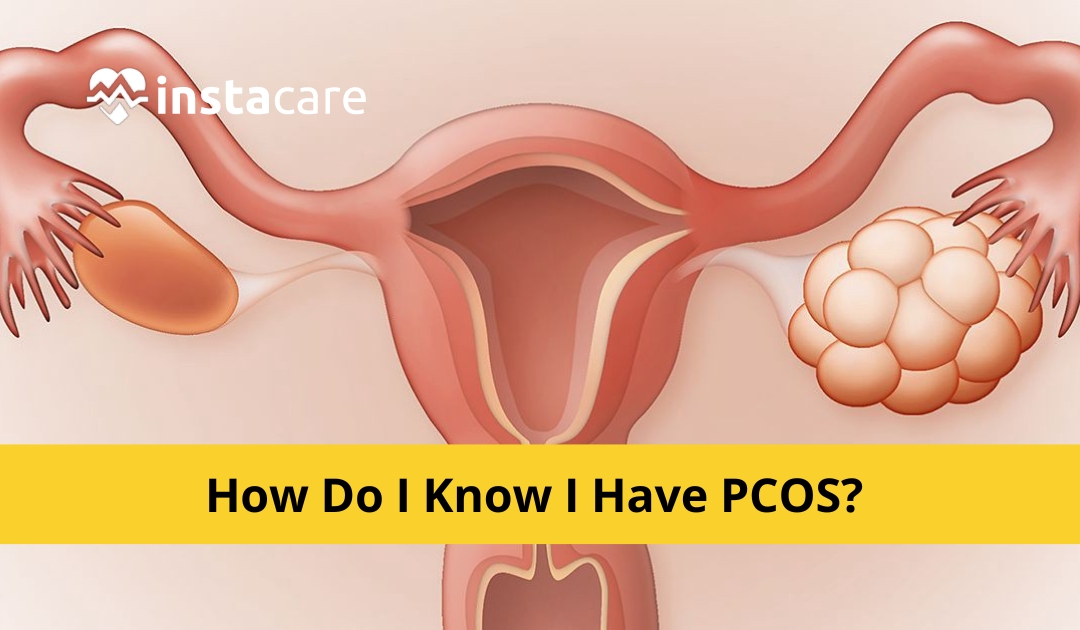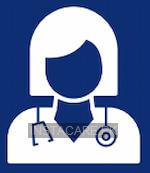Do you have difficulty managing your weight, excessive facial and body hair growth, or infrequent menstrual cycles? If so, you may be experiencing symptoms related to polycystic ovary syndrome (PCOS). PCOS is the most common hormonal disorder among women of reproductive age and can cause a variety of mental, physical and emotional health concerns. It is important to know how to identify the signs in case you are one of many who are suffering from this condition. To help understand what it is and how to know if you have it, keep reading!
What is PCOS?
Polycystic ovary syndrome (PCOS) is a disorder that affects women's hormone levels, affecting the production of eggs in their reproductive systems. It also affects their physical appearance and can cause an array of other issues as well, such as irregular menstrual cycles, weight gain, difficulty conceiving, acne outbreaks and excessive hair growth.
In order to be diagnosed with PCOS a woman should have at least two of these symptoms present for long enough for them to be considered stable; the longer her symptoms remain stable after being diagnosed then the more positive outcome is expected from treatment. PCOS is one of the most common reproductive conditions amongst women, but because its symptoms can sometimes be linked to multiple factors it can take patience and careful testing to diagnose.
Symptoms of PCOS?
Polycystic ovarian syndrome (PCOS) is a hormonal condition that affects an estimated 1 in 10 women of reproductive age and can cause symptoms such as irregular periods, excessive hair growth on the face, chest and other areas of the body, acne, weight gain, infertility and depression. Other less common symptoms include baldness or thinning patches of hair on the scalp, pelvic pain and dark patches of skin on the neck or underneath breasts. If you experience any of these symptoms they should be discussed with your doctor to determine if they could be due to PCOS or another medical condition.
How do you know if you have PCOS?
Polycystic Ovary Syndrome (PCOS) is a complex endocrine disorder that affects up to 12% of women of reproductive age. Its symptoms can vary greatly, ranging from irregular menstrual cycles, excessive body hair growth (hirsutism), and acne to difficulty getting pregnant. To diagnose PCOS, your healthcare provider may do an ultrasound of your ovaries, blood tests to check your hormone levels and ruling out other possible causes of your symptoms.
Women diagnosed with PCOS may benefit from lifestyle modifications such as dietary changes and regular exercise to improve their symptoms. Additionally, medications such as birth control pills or anti-androgen drugs may be prescribed to manage any hormonal imbalances and get their reproductive system back on track.
What your doctor will ask?
When you visit your doctor to discuss symptoms of Polycystic Ovarian Syndrome (PCOS), you can expect to be asked a series of questions about how you are feeling, as well as a set of physical exams that may help determine if PCOS is the right diagnosis. Your doctor will want to know how long you've been having certain symptoms, how severe they are, and how they're impacting your daily life. You may also be asked what medications or treatments you are currently using or have used in the past.
Additionally, your doctor will likely inquire how long it has been since your last period, how regular it usually is, how heavy it usually is and how much pain or discomfort it causes. These details can aid in accurately diagnosing PCOS so that the best treatment plan can be prescribed for how do I know I have PCOS.
Physical exam
A physical exam is a key step in determining how to approach and diagnose polycystic ovary syndrome, or PCOS. During a physical exam, your healthcare provider will assess your height, weight, and body mass index (BMI). They will also check for signs of hirsutism (excess hair growth), acne, obesity, and male-pattern baldness. Additionally, they may feel your abdomen to look for an increase in ovary size and the presence of cysts. Through these measures and additional tests such as lab work and imaging procedures, your healthcare provider can accurately determine how do I know if I have PCOS.
Tests
Do you have irregular periods, excessive facial hair, and difficulty getting pregnant? If so, you may have a condition called Polycystic Ovarian Syndrome (PCOS). To diagnose PCOS, medical professionals typically perform a physical exam and lab tests to measure hormone levels and evaluate how well your ovaries are functioning. Ultrasounds of the ovaries are often used as well, as this is how technicians inspect for the presence of cysts.
Blood sugar tests may also be used to look for insulin resistance as many individuals with PCOS suffer from higher than normal levels of insulin in their bodies. If these tests come back positive for PCOS then there are treatments that can help you manage your symptoms and improve health. Knowing how to test for PCOS can give individuals a better understanding of their bodies and how to care for themselves accordingly.
Signs of PCOS
1- Irregular Periods
Irregular periods can be caused by a variety of factors, and are often signs of an underlying health condition. Polycystic Ovary Syndrome (PCOS) is one of the most common causes of irregular periods. Common signs of PCOS are infrequent periods, irregular cycles, heavy or too light bleeding and excessive hair growth in areas typically unwanted such as the face and chest. Other signs can also include acne, weight gain and infertility. It's important to consult with a doctor if you experience any signs or symptoms of PCOS as early detection can help to manage the disorder more effectively.
2- Difficulty Conceiving
If you're struggling to conceive, it may be a sign of Polycystic Ovarian Syndrome (PCOS). This condition affects hormone levels and can cause problems with ovulation. Common signs of PCOS include missed periods, irregular menstrual cycles, and excess signs of male hormones such as extra hair growth and acne on the face or body.
Infertility is also one of the many consequences associated with this condition. If you experience any signs of PCOS, be sure to talk to your doctor right away. With proper diagnosis and treatment, you can take steps towards a healthier pregnancy journey.
3- Excess Hair Growth in Unexpected Places
Excess hair growth in unexpected places is a common symptom of a disorder known as polycystic ovary syndrome (PCOS). PCOS occurs when there is an imbalance of reproductive hormones, resulting in signs such as irregular periods, infertility and increased facial or body hair.
High insulin levels are also signs of PCOS and can lead to various other health issues if left untreated. Those who are suffering from excess body or facial hair should speak to their doctor about the possibility of having PCOS. With the help of a physician, the correct diagnosis can be made, followed by an appropriate plan for treatment.
4- Hair Loss On the Flip Side
Despite the frequent anxiety that hair loss causes people, it can also be a sign of something that is treatable and productive. Hair loss can be an indication of signs of PCOS - Polycystic Ovarian Syndrome. PCOS is a health condition affecting 5-10% of women worldwide, and signs include irregular menstrual cycles, cysts on the ovaries, infertility and weight gain.
Although it can be challenging to manage, PCOS can often be controlled with the right diet and medication. Early signs of hair loss may encourage people to pay attention to other signs their bodies are showing that could indicate they have PCOS, helping them get treated before any more issues with their health arise.
View More: 10 Effective Menstrual Pain Remedies
5- Overweight
Being overweight can be an indicator of a larger health issue, such as Polycystic Ovarian Syndrome (PCOS). PCOS is a hormonal condition that can impair fertility and cause irregular menstrual periods; signs include extra facial and body hair growth, male-pattern baldness, breakouts, and ovarian cysts.
If you aren't physically active or are eating unhealthy foods, it's important to pay attention to your weight gain and look out for signs of PCOS. Consulting a physician is the best way to determine if you have an underlying issue that is causing your weight gain.
6- Mood Disorders Anxiety and Depression
Mood Disorders such as Anxiety and Depression can cause tremendous distress, altering daily activities and impacting overall quality of life. Signs of these disorders may include signs of central nervous system dysregulation such as difficulty focusing or sleeping, an unstable emotional state, or a sense of fear without a known trigger.
While these signs can be subtle initially, they often become more pronounced when left untreated which is why it is important to recognize signs early on and seek help from qualified professionals for developing an effective plan for dealing with the disorder. With the right treatment, people suffering from Mood Disorders can start to cope with symptoms so that they can live healthier, more fulfilling lives.
7- Type 2 Diabetes
Type 2 diabetes is a concerning metabolic health condition that affects millions of people around the world. It's estimated that 8.8% of adult Americans have been diagnosed with the disease and, unfortunately, its signs and symptoms aren't always easily identifiable.
Common signs of type 2 diabetes include blurry vision, fatigue, frequent urination, increased thirst and hunger, weight loss or gain, cuts or infections that heal slowly as well as signs of polycystic ovary syndrome like hirsutism, irregular periods, and infertility.
The good news is that when detected early and managed properly with lifestyle changes such as healthier eating habits and regular physical activity, it can be controlled to the point where diabetes-related complications can be avoided altogether.
8- Sleep Trouble
Do you find yourself having trouble sleeping even after your daily routine? This could be a sign of PCOS (Polycystic ovary syndrome). PCOS symptoms can include difficulty with sleep, unexpected weight gain, acne, and irregular or absent periods. If you are experiencing one of these signs or signs of fatigue or distress that keep you up at night, it is important to discuss it with your doctor right away. Treatment options are available to help ease the signs of PCOS and restore a healthy sleeping pattern. It’s time to get serious about your sleep health and take the necessary steps towards getting optimal restful sleep!
What are the First Signs of PCOS?
Polycystic ovary syndrome (PCOS) is a common hormonal disorder in young women, usually leading to signs and symptoms that appear during puberty. The signs of PCOS typically include irregular or heavier-than-normal menstrual cycles, acne, weight gain, difficulty losing weight, excessive facial hair growth, and male-pattern baldness.
These signs can vary from person to person, with some signs appearing without any signs of the others. When it comes to diagnosis of PCOS, blood tests can measure hormone levels and an ultrasound can be used to detect cysts on the ovaries. Being aware of the signs of PCOS is important for getting an early diagnosis and managing this health condition properly.
How Is PCOS Diagnosed?
Polycystic Ovary Syndrome (PCOS) is a common hormone disorder that affects women of reproductive age. PCOS diagnosis typically begins with a comprehensive physical and medical history assessment, including a discussion of symptoms experienced and family history. Depending on the results, window to visit laboratory tests such as hormone level measure and ultrasound might be recommended in order to confirm the diagnosis.
By ruling out other underlying factors, your doctor can accurately diagnose PCOS after considering all the information obtained from this process. Increasingly, providers are relying upon blood tests to measure hormones and detect molecular markers associated with PCOS in order to corroborate their findings.
View More: Top 10 Womens Health Issues in Pakistan
How is PCOS treated?
Polycystic ovary syndrome (PCOS) can be treated with medications, lifestyle changes, or a combination of both. Hormonal birth control is often prescribed to regulate menstrual cycles and reduce testosterone levels. Alternatively, medications such as metformin can be used to help balance the hormones and increase the body's sensitivity to insulin. Nutrition plays an important role in treating PCOS as well. Eating a balanced diet of nutrient-dense foods high in fibre, low in saturated fats and sugars is recommended to help reduce weight gain, manage symptoms such as hirsutism, or excess facial hair growth, and improve fertility prospects.
Additionally, engaging in regular physical activity has been found to contribute greatly to the management of PCOS. Exercise helps with weight reduction and improves glucose tolerance and metabolic functioning that might have been disrupted due to higher than normal insulin levels. If these treatments do not work for a particular individual, other methods such as surgery may be suggested by their healthcare provider.
Conclusion
Polycystic ovarian syndrome is a hormonal disorder common among women of childbearing age. It can cause difficulty getting pregnant, insulin resistance, and PCOS may also be linked to an increased risk for certain types of cancer. If you think you might have PCOS or are experiencing any of the symptoms listed above, make an appointment with your doctor to discuss treatment options.
Please book an appointment with the best Gynecologist in Lahore, Karachi, Islamabad, and all major cities of Pakistan through InstaCare, or call our helpline at 02137136090 to find the verified doctor for your disease.












